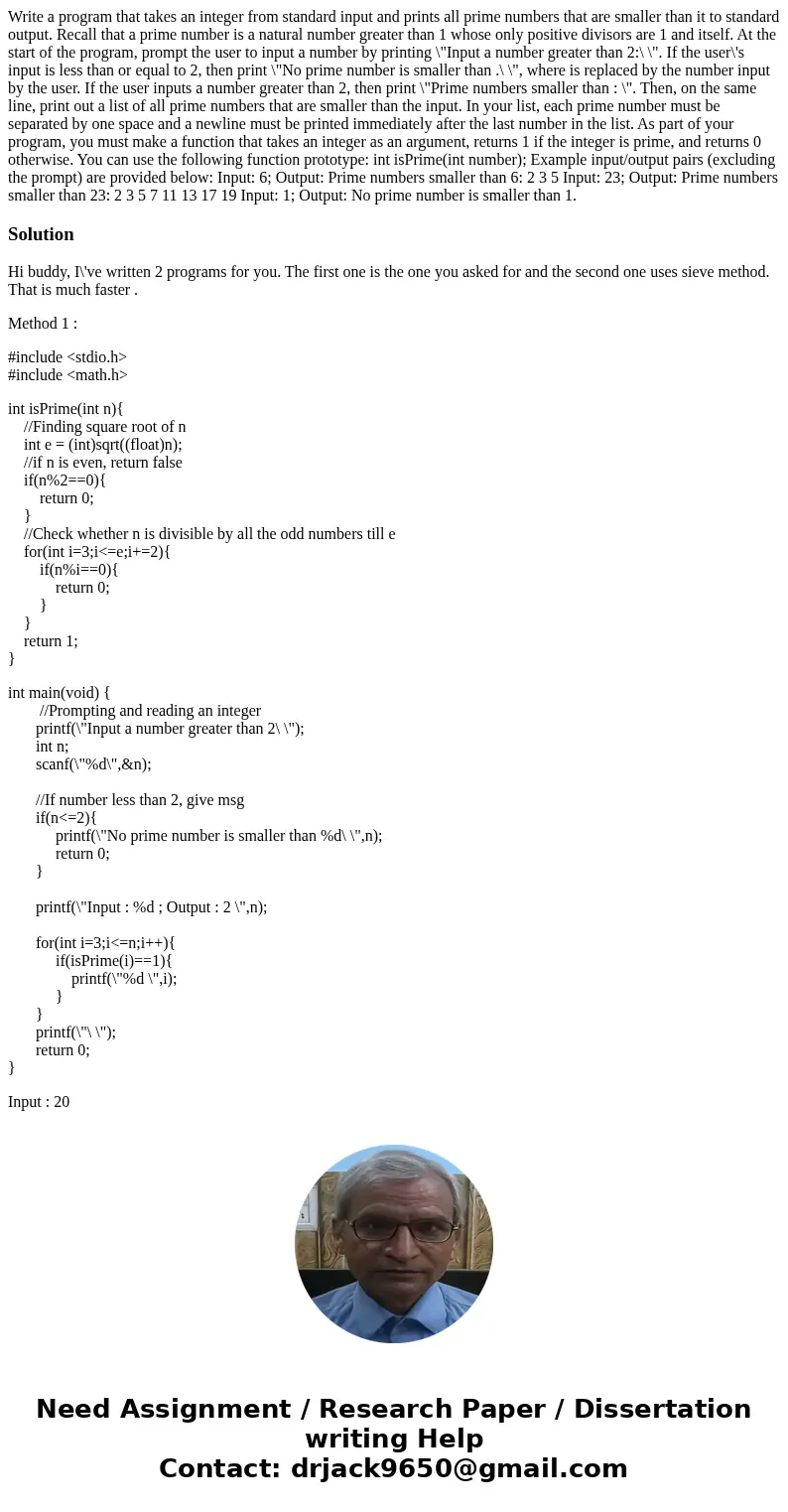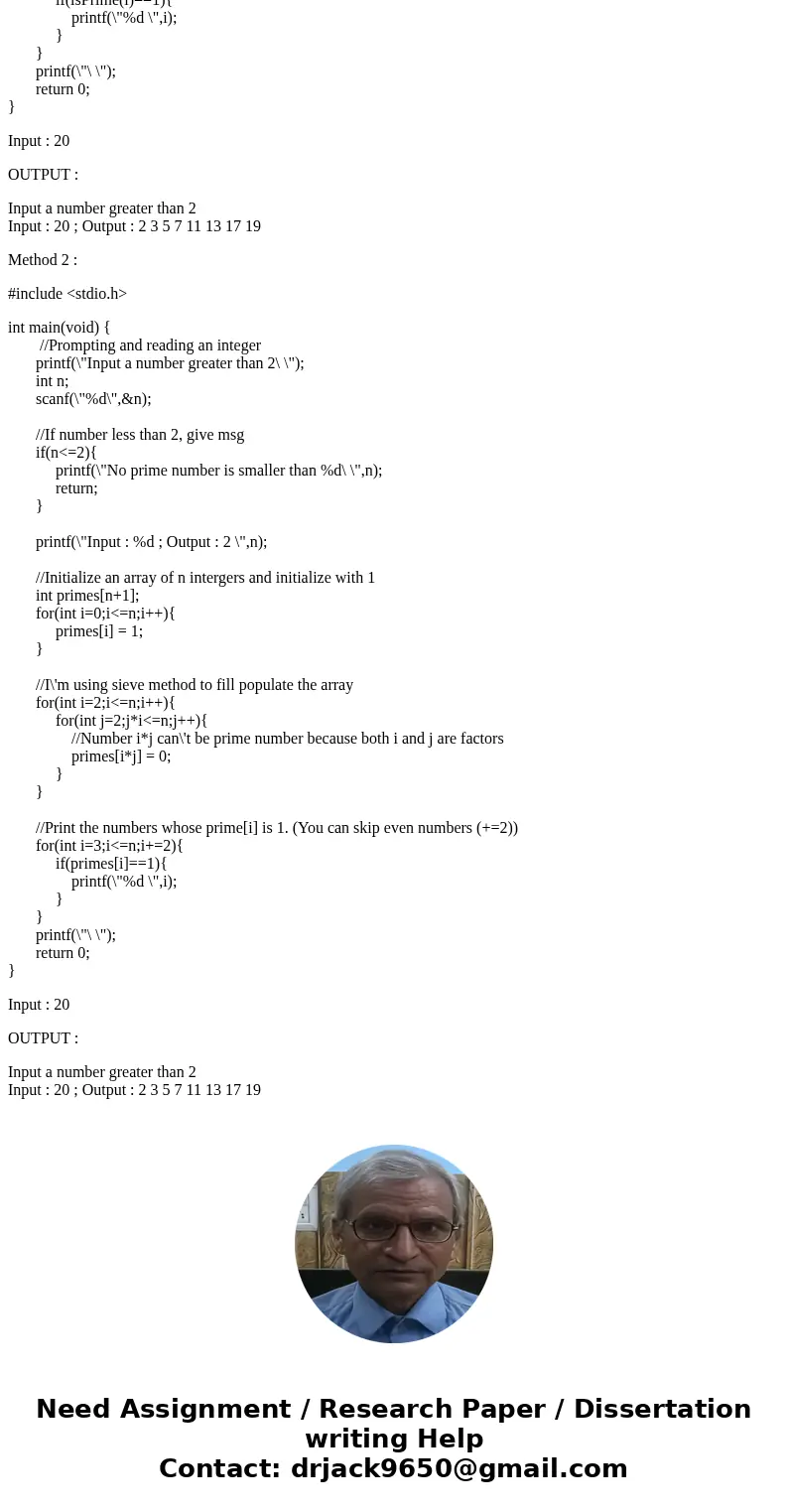Write a program that takes an integer from standard input an
Solution
Hi buddy, I\'ve written 2 programs for you. The first one is the one you asked for and the second one uses sieve method. That is much faster .
Method 1 :
#include <stdio.h>
#include <math.h>
int isPrime(int n){
//Finding square root of n
int e = (int)sqrt((float)n);
//if n is even, return false
if(n%2==0){
return 0;
}
//Check whether n is divisible by all the odd numbers till e
for(int i=3;i<=e;i+=2){
if(n%i==0){
return 0;
}
}
return 1;
}
int main(void) {
//Prompting and reading an integer
printf(\"Input a number greater than 2\ \");
int n;
scanf(\"%d\",&n);
//If number less than 2, give msg
if(n<=2){
printf(\"No prime number is smaller than %d\ \",n);
return 0;
}
printf(\"Input : %d ; Output : 2 \",n);
for(int i=3;i<=n;i++){
if(isPrime(i)==1){
printf(\"%d \",i);
}
}
printf(\"\ \");
return 0;
}
Input : 20
OUTPUT :
Input a number greater than 2
Input : 20 ; Output : 2 3 5 7 11 13 17 19
Method 2 :
#include <stdio.h>
int main(void) {
//Prompting and reading an integer
printf(\"Input a number greater than 2\ \");
int n;
scanf(\"%d\",&n);
//If number less than 2, give msg
if(n<=2){
printf(\"No prime number is smaller than %d\ \",n);
return;
}
printf(\"Input : %d ; Output : 2 \",n);
//Initialize an array of n intergers and initialize with 1
int primes[n+1];
for(int i=0;i<=n;i++){
primes[i] = 1;
}
//I\'m using sieve method to fill populate the array
for(int i=2;i<=n;i++){
for(int j=2;j*i<=n;j++){
//Number i*j can\'t be prime number because both i and j are factors
primes[i*j] = 0;
}
}
//Print the numbers whose prime[i] is 1. (You can skip even numbers (+=2))
for(int i=3;i<=n;i+=2){
if(primes[i]==1){
printf(\"%d \",i);
}
}
printf(\"\ \");
return 0;
}
Input : 20
OUTPUT :
Input a number greater than 2
Input : 20 ; Output : 2 3 5 7 11 13 17 19


 Homework Sourse
Homework Sourse